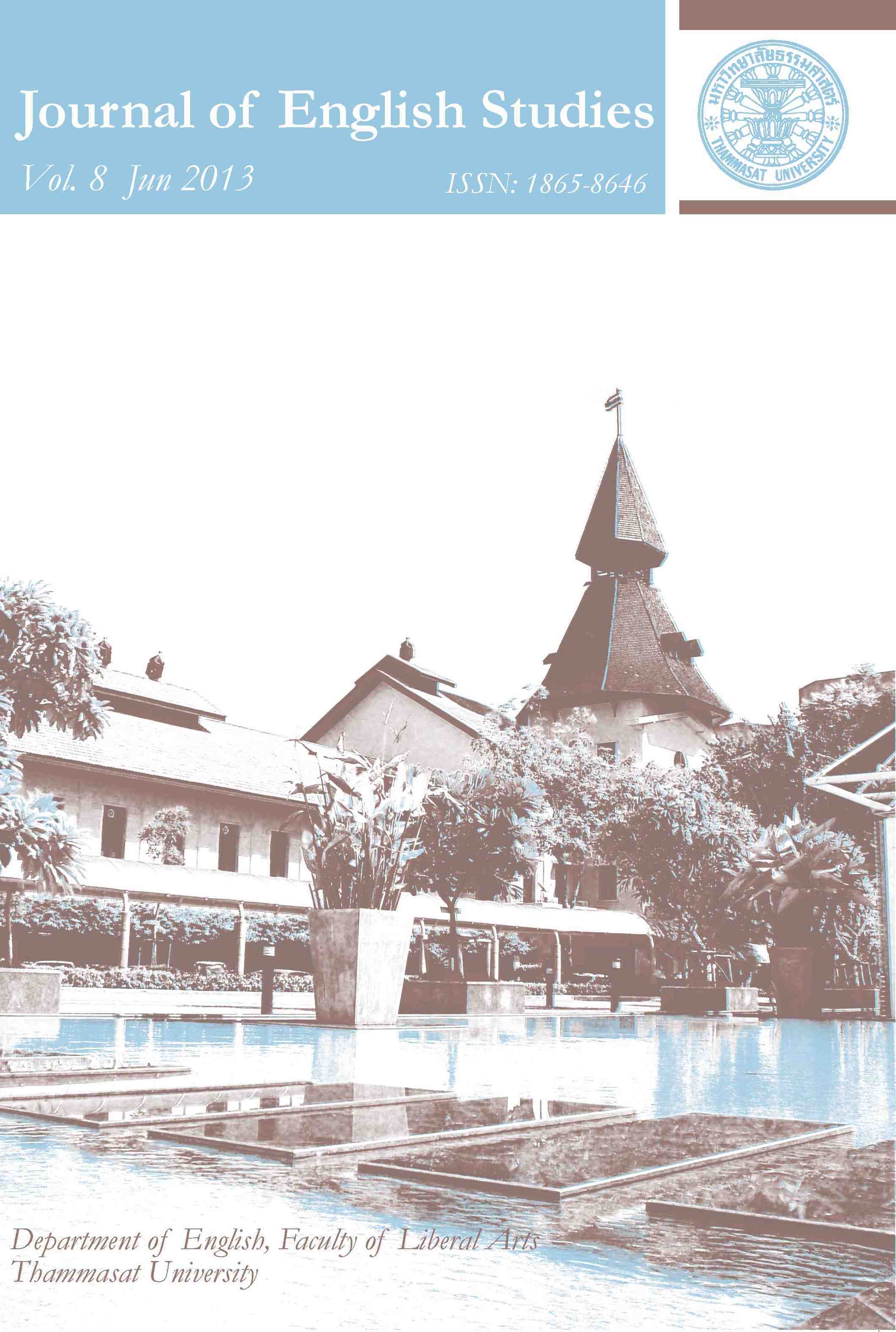Medusa Myth: Reflecting Human Collective Experiences of the Femaleness
Main Article Content
Abstract
This essay deliberates on an interpretation of the Medusa myth in Greek mythology through two psychoanalitical approaches: Sigmund Freud’s theory of castration, and Carl G. Jung’s theory of the Archetype. Based on psychoanalytical concepts, certain logical conclusions regarding sexuality that differentiate men and women are reflected in this myth, serving as a part of human psychological development established in the society in the form of social norms and rites. These logical conclusions, illustrated and interpreted through characterization in the story, bring to light psychoanalytical concepts toward sexuality related to the following:1) why the character Medusa is presented as a monstrous creature with destructive powers to turn men who gaze at her into stone , and 2) how the relationships between this female character and other characters including Perseus, the protagonist in this hero myth, Goddess Athena, and Danaë Perseus’s mother apply.
Keywords: Greek mythology and psychoanalysis; Medusa and psychoanalysis; sexuality in Medusa myth; Medusa myth


